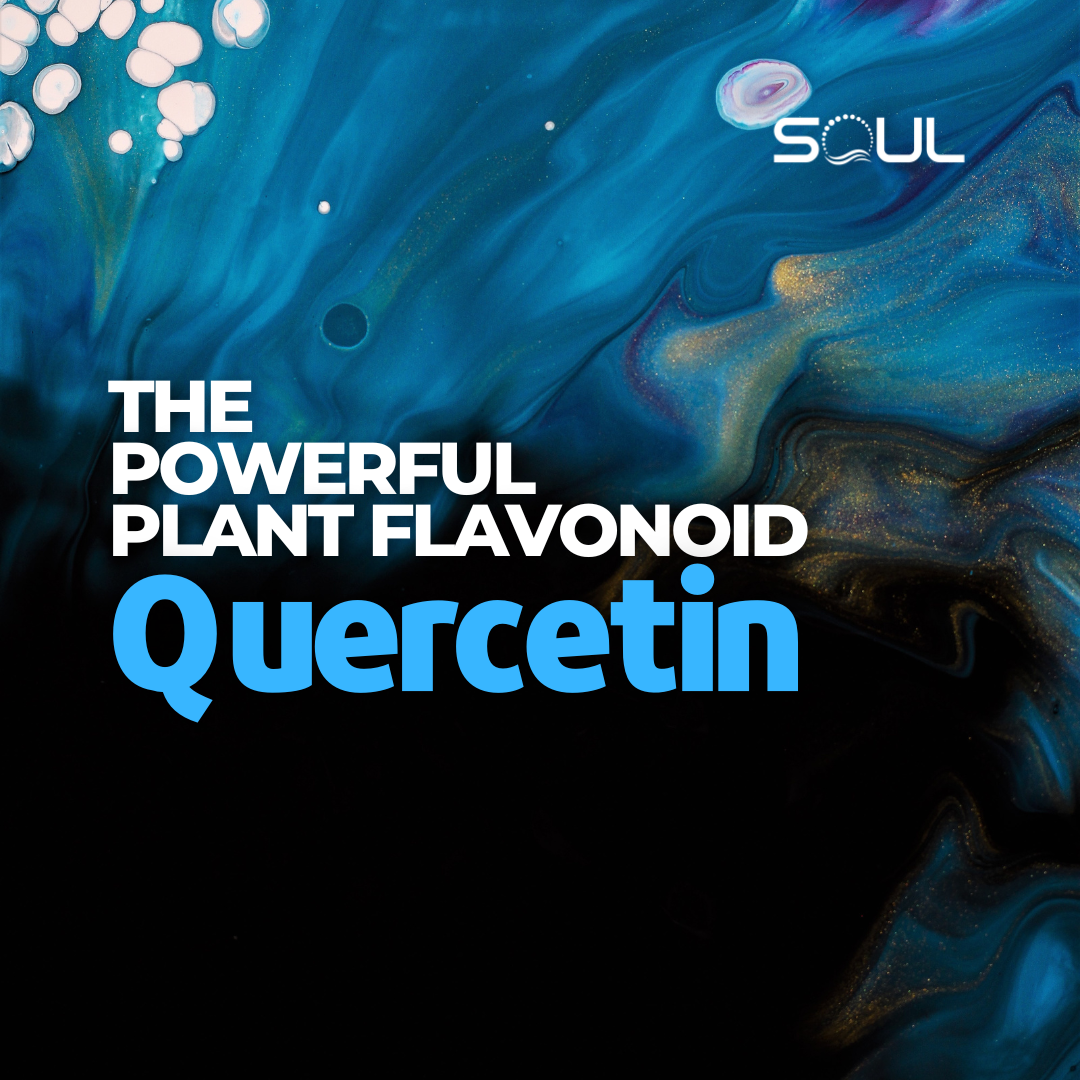
Quercetin: Unveiling the Health Benefits of this Powerful Plant Compound
In the world of nutrition, we’re constantly discovering how nature provides an arsenal of compounds that can elevate our health. One such standout is quercetin—a flavonoid that quietly packs a powerful punch. Found in a variety of fruits, vegetables, grains, and herbs, quercetin has captivated scientists and health enthusiasts alike due to its impressive antioxidant and anti-inflammatory properties. Today, we’re diving into the world of quercetin to understand how this hidden gem can potentially elevate our health and well-being.
The Basics of Quercetin: A Flavonoid with a Mission
At its core, quercetin is a flavonoid, a class of compounds known for their vivid pigments and numerous health benefits. Chemically, it’s a polyphenol that nature has distributed generously across many plant foods. But here’s the kicker: this compound isn’t just sitting idly in your fruits and veggies—it’s actively working to protect your cells and support your health.
Nature’s Abundant Sources of Quercetin
Mother Nature doesn’t disappoint when it comes to quercetin-rich foods. By incorporating a diverse range of these foods into your diet, you’re unlocking the potential of this nutrient. Let’s take a look at some key sources:
- Fruits: Apples, berries like cranberries and blueberries, cherries, and citrus fruits such as oranges and grapefruits are quercetin gold mines. Not to mention grapes, which also make a star appearance.
- Vegetables: Onions are a surprising standout, alongside leafy greens like spinach and kale, broccoli, tomatoes, and even capers.
- Herbs and Spices: A dash of dill, parsley, sage, cilantro, or cloves can be a sprinkle of goodness.
- Others: Tea, especially green tea, along with red wine and whole grains, also bring a dose of quercetin to your table.
Now that we’ve set the stage, let’s explore how this compound can impact our health.
Antioxidant Activity: A Cellular Defense System
At the molecular level, quercetin’s antioxidant abilities are nothing short of extraordinary. Here’s how it works: every day, our bodies are bombarded with free radicals—those unruly molecules that can damage cells and accelerate aging. Think of quercetin as a skilled bodyguard, neutralizing these free radicals before they can cause havoc. By doing so, quercetin not only protects our cells but also helps reduce the risk of chronic conditions such as heart disease, diabetes, and certain cancers.
But there’s more. The antioxidant capacity of quercetin extends to cellular resilience, supporting healthy aging. Imagine a silent protector working behind the scenes, keeping your cells in top condition even as the years go by.
Anti-Inflammatory Properties: A Gentle Hand on the Flame
Inflammation is a double-edged sword. While it’s an essential part of the healing process, when left unchecked, chronic inflammation can lead to a laundry list of health issues. This is where quercetin’s anti-inflammatory effects come into play. Mechanistically, it acts like a thermostat, dialing down the inflammatory response by inhibiting key molecules and enzymes.
For those suffering from allergies, arthritis, or inflammatory bowel conditions, quercetin could potentially ease symptoms by calming the body’s overactive inflammatory response. It’s like having a skillful mediator at the negotiation table, ensuring that inflammation doesn’t spiral out of control.
Cardiovascular Health: Strengthening the Heart’s Foundation
The heart is the epicenter of vitality, and quercetin seems to understand this. Research suggests that quercetin plays a role in lowering blood pressure, reducing LDL cholesterol levels, and improving blood vessel function. It also appears to inhibit the oxidation of LDL cholesterol—a critical factor in the development of atherosclerosis.
The way quercetin operates here is quite tactical. By preventing LDL oxidation, it’s akin to stopping the rusting process on a vital piece of machinery, keeping your cardiovascular system running smoothly. The result? A potentially lower risk of heart disease, stroke, and related conditions.
Immune System Support: The Body’s Defense Mechanism
A robust immune system is your body’s frontline defense against infections. Quercetin doesn’t just sit on the sidelines—it’s actively involved in regulating immune responses. Studies indicate that quercetin modulates the production and activity of immune cells and cytokines, which play a central role in fighting off pathogens.
Additionally, the compound exhibits antiviral and antibacterial properties. While the exact mechanisms are still being explored, it’s plausible that quercetin could be a versatile ally in bolstering the immune system and enhancing the body’s resilience to common infections.
Neuroprotective Effects: A Shield for the Brain
As if that wasn’t enough, quercetin may also act as a shield for the brain. Oxidative stress and inflammation are two culprits in neurodegenerative diseases, and quercetin’s antioxidant and anti-inflammatory properties may offer a line of defense. By reducing oxidative damage and calming inflammation, quercetin holds potential in mitigating the risk of cognitive decline.
The Bigger Picture: Quercetin in Your Diet
Quercetin offers a glimpse into how nature’s compounds can support our health in profound ways. While current research is promising, more studies are needed to fully uncover the mechanisms, optimal dosages, and long-term effects of quercetin. It’s also crucial to remember that no single compound is a magic bullet—maintaining a varied diet rich in fruits, vegetables, and other nutrients is the key to long-lasting health.
So, the next time you reach for an apple or brew a cup of green tea, think of quercetin working quietly behind the scenes, defending your cells, soothing inflammation, and supporting your heart and brain. It’s nature’s gift—a reminder that sometimes, the most powerful health solutions are already within our reach.
